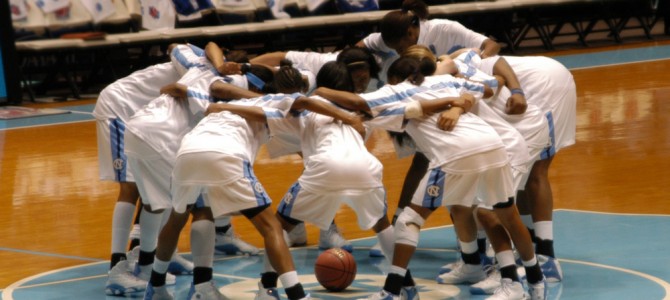He never picked up a book but somehow always had good grades. A power forward for the Creighton University Bluejays, Kevin Ross didn’t worry about school, only basketball. His coaches arranged the rest. But senior year, when he got hurt, he got cut. Then he flunked out, because even after three years of college, Ross still couldn’t read.
That was 33 years ago. Now Ross works as a custodian—just another washed out student-athlete bounced from life’s bracket, thanks to the National Collegiate Athletic Association (NCAA). Today, Division I sports fosters the same insanity.
Last Friday, the University of North Carolina released 59 pages of evidence detailing how more than 3,000 student-athletes took fake classes to satisfy core requirements for over two decades. But honestly, is anyone really surprised? The league has always emphasized eligibility over education, penalizing players for the rest of their lives. At the highest levels, students either cheat or settle for cheap degrees to keep their spot on the roster.
Academics Are a Cover for Cheap Athletic Labor
Northwestern University Quarterback Kevin Colter summarized the problem perfectly. The student-athlete says he and his teammates “are employees just like the NFL players are employees” and as such they “spend 50-60 hours practicing.” Players like Colter want fiscal compensation but they really need a good education. And the NCAA should ensure they get one.
That much time in the gym or on the field doesn’t leave much time at the library. Unless the league tips the academic-athletic balance heavily in favor of schooling, it will see more cheating scandals like those headlined at UNC.
Many other universities, such as Oklahoma and Florida State universities, remain infamous for the pathetic academic standards they allow for student-athletes. Yet the NCAA continues to tout graduation rates as a buzzer beater for every academic jam.
Watch any NCAA game and you’re bound to hear some advertisement touting that nearly all student-athletes “will be going pro in something other than sports.” It’s the same screen play NCAA President Mark Emmert set on Congress last summer: the association is dedicated to “promoting the well-being and academic success of college athletes.” In the NCAA rulebook, that means graduation.
College-Level Illiterates
Association brass regularly brags that their squad of athletes outpaces their non-athletic counterparts. Except that’s not exactly true. Statistics compiled by the University of South Carolina’s Collegiate Sport Research Institute demonstrate that year after year athletes graduate at lower rates than their non-lettered counterparts.
More startling than these dismal stats are the real-world stories they represent. Many of the student athletes NCAA pushes across the graduation stage aren’t prepared for the workforce. According to Mary Willingham, a retired special-education expert from UNC, most face the same challenges as Ross did. Charged with teaching underachieving athletes, Willingham regularly encountered illiterate student athletes. One came to her wanting just to “read well enough so he could read about himself in the news.”
Surveying the UNC football and basketball students from 2004 to 2012, she found that 60 percent read between a fourth- and eighth-grade level. Another 10 percent couldn’t read past a third-grade level. Disappointing at any university, these numbers are especially depressing coming from UNC-Chapel Hill, an institution traditionally regarded as public ivy.
Worse yet, UNC officials pushed many students capable of achieving a meaningful education toward meaningless degrees. Several students revealed they were pushed to major in African American Studies and to take Swahili language classes.
“I lost an education.” a former football player explains, “I lost trust in the school—someone I thought had my best interest.”
Stop Exploiting Your People, NCAA
Sadly, these findings aren’t unique. A USA Today study showed how large portions of entire NCAA teams will major in throwaway majors at their institution like sociology or exercise science. Others will earn nondescript degrees in multi-disciplinary studies or communication arts.
Filling out a bracket for March Madness, one wonders how powerhouses like Kentucky or Wisconsin can compete for months and still stay on top of their grades. Looking a little closer at the degrees these student-athletes pursue, one wonders if grades even matter.
This year, NCAA sold the television rights of the men’s basketball championship for $831 million dollars. Instead of bankrolling coaches and administrators, they should put it to better use elsewhere. Paying players would be shortsighted. Teaching them to read would be more rewarding.
If that means worse basketball but better academics, so be it. The NCAA should show more concern for better student outcomes, not better brackets.









